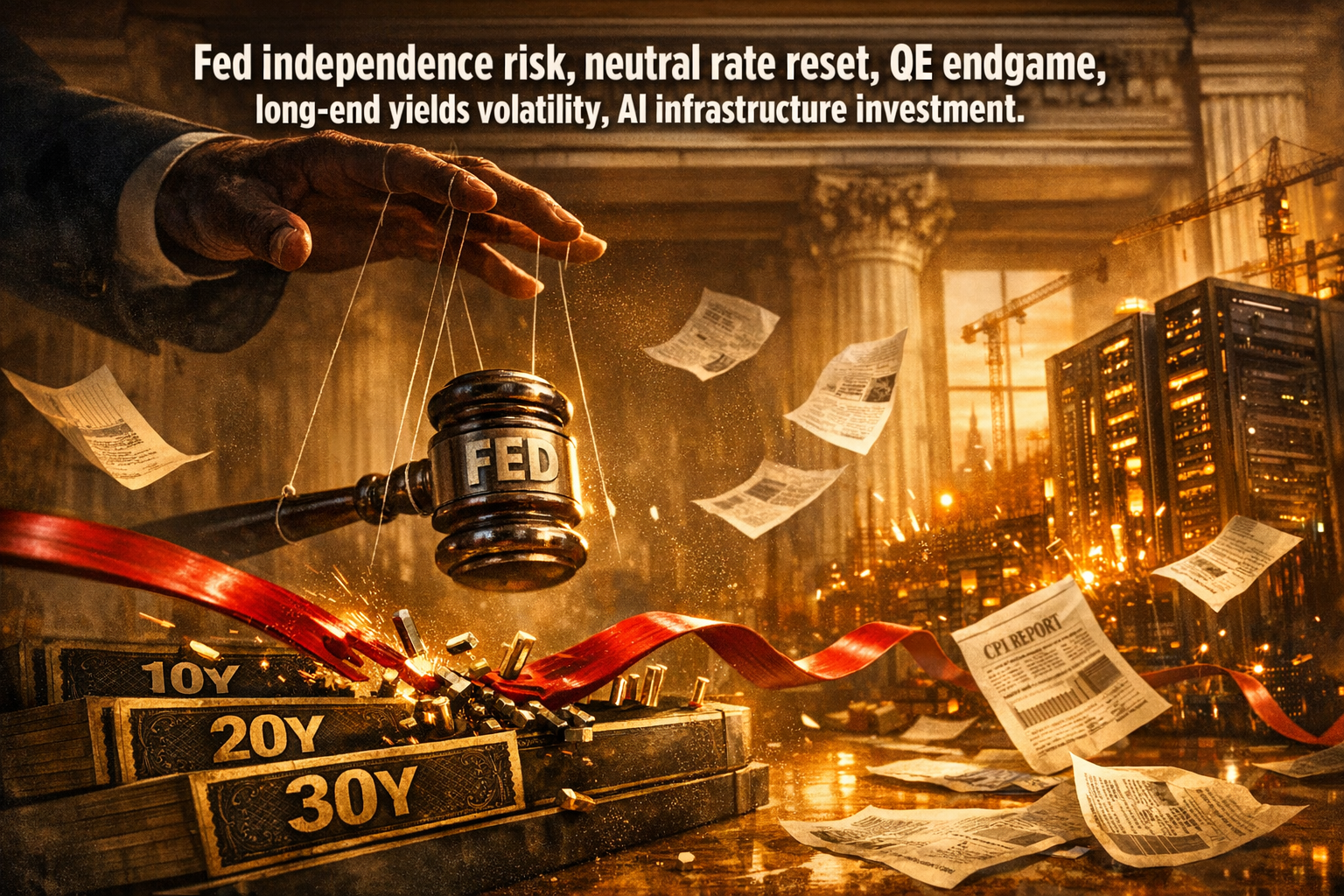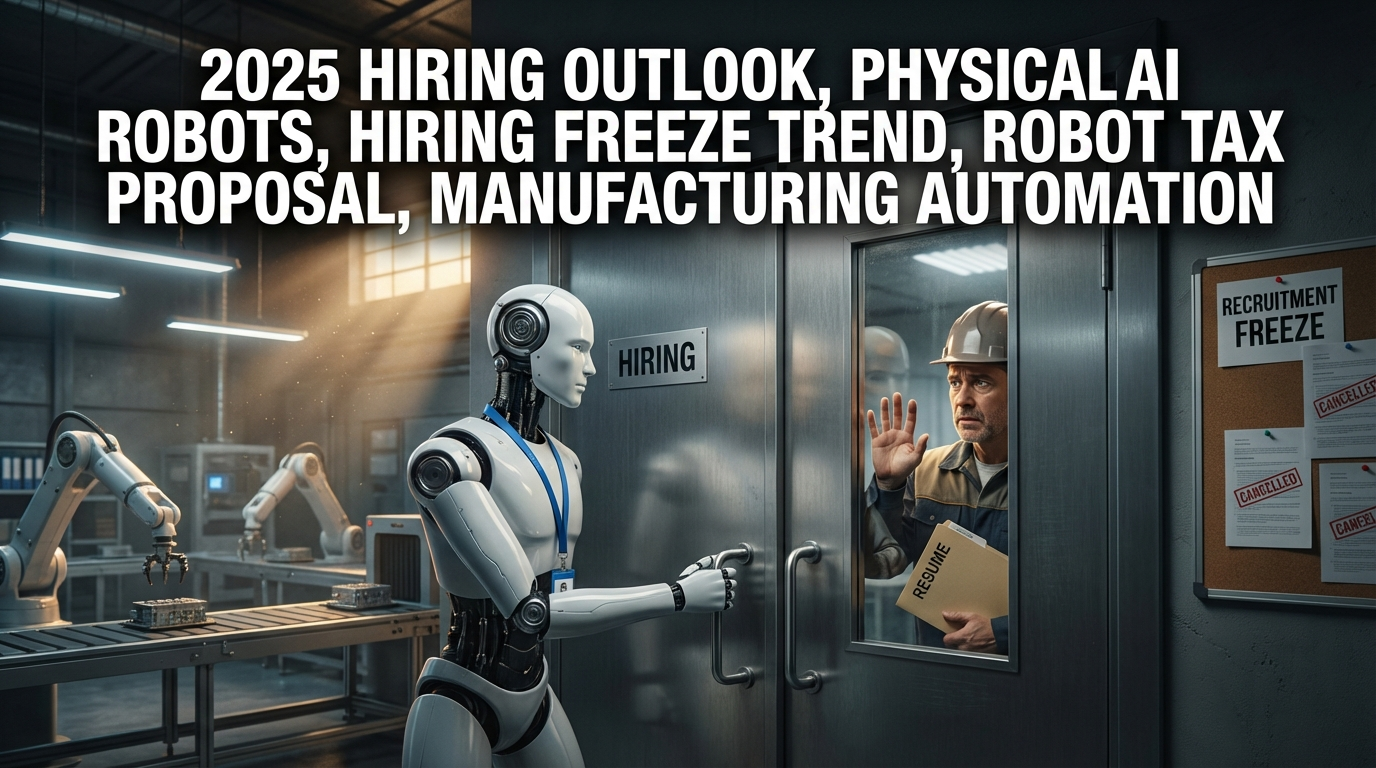● US-China Value Chain Clash, Trade War Endgame
Unfolding of the U.S.-China Trade War and Prospects for Global Value Chain Restructuring
1. U.S. Provocation and Pursuit of Tariff War
The U.S. is noticeably attempting to reshape the global economic landscape through this tariff war.
Although the U.S. has historically led with genius and innovation, it is expected to face difficulties in this attempt to expand domestic manufacturing infrastructure due to high costs and labor shortages.
In other words, the strategy of relying on tariffs and domestic production may have short-term effects but could burden the U.S. economy in the long run.
2. Challenges for the U.S. Economic System
The U.S. attempt to resolve everything within its borders while restructuring the global value chain incurs significant cost burdens.
Rising treasury yields, labor shortages, and the long time span required for expanding manufacturing are noted as problems.
These factors strain the ‘idea provision’ and ‘innovation’ structures that were traditional strengths of the U.S., ultimately implying the possibility of strategic failure for the U.S.
3. China’s Response Strategy and Supply Chain Advantage
Thanks to its strong internal stability and authoritarian leadership, China shows resilience in this trade war.
Leveraging its advantage in the global supply chain, it is expected to maintain market stability despite high tariff burdens.
In particular, China has the advantage of responding without cost burdens, unlike the U.S., in the restructuring of the supply chain and localization trends.
4. Global Value Chain Restructuring and Economic Hegemony Competition
The U.S. is attempting to restructure the existing global value chain by expanding within the U.S., but this process involves significant costs and time burdens.
As a result, the traditional U.S.-led global economic order is expected to change.
The strengthening of cooperation and joint response momentum with other economic blocs such as Europe, China, and even the Global South may lead to a multi-polarized economic order.
5. Prospects for the Korean Stock Market and Corporate Structure Improvement
As the U.S.-China trade war unfolds, short-term uncertainties increase, but Korean companies can create opportunities through shareholder-friendly governance improvements and small shareholder activation.
In particular, undervalued blue-chip stocks are expected to seize recovery opportunities along with structural improvements.
An increase in interest from domestic investors could lead to positive effects across the stock market.
< Summary >
Amid the unfolding of the U.S.-China trade war, the U.S. is challenged in expanding its own manufacturing infrastructure, facing difficulties such as high costs and labor shortages. On the other hand, China is responding based on its strong supply chain advantage and solid system, potentially forming a global value chain restructuring and economic hegemony competition structure. Korea may face opportunities for stock market recovery thanks to shareholder-friendly corporate structure improvements and small shareholder activation. Key words: trade war, U.S. economy, global economy, tariffs, Chinese economy
[Related Articles…] Trade War Trends | Tariff Policy Change Analysis
*YouTube Source: [경제 읽어주는 남자(김광석TV)]
– 충격적인 전망… 美·中 밸류체인 격돌, 무역 전쟁의 결말 | 경읽남과 토론합시다 | 김학균 센터장 3편

● ECB Cuts Again, Trump Urges Follow,
<html>
<body>
<h4>Today's Global Economy, Stock Market, and Interest Rate News Roundup</h4>
<p>Today's article covers U.S. President Trump's urging of the Federal Reserve (interest rate cut demands and hints at firing Powell), the European Central Bank's interest rate cut decision, the Google antitrust ruling, strict measures related to Harvard, the New York Fed President's economic outlook, global dollar strategy, mixed U.S. stock market and major company (Eli Lilly, Nvidia, Netflix) news, and the surge in oil prices in order. It is organized in detail for each issue so that anyone can easily grasp the key points.</p>
<h3>[1] Interest Rate Debate Between U.S. Trump and the Federal Reserve</h3>
<p>President Trump claimed to have urged the Federal Reserve to cut interest rates. He mentioned that the harsh comments posted on Truth Social implied the dismissal of Federal Reserve Chairman Jerome Powell.</p>
<p>Trump mentioned the case of the European Central Bank cutting interest rates, arguing that we should also immediately cut interest rates.</p>
<p>Powell warned of the impact of the tariff war on inflation, but Trump strongly refuted this, emphasizing that tariff policies are actually contributing to wealth accumulation.</p>
<h3>[2] European Central Bank Interest Rate Cut Decision</h3>
<p>At the Monetary Policy Council meeting held in Frankfurt, Germany, the European Central Bank lowered its benchmark interest rate from 2.50% to 2.25% and from 2.65% to 2.40%, respectively.</p>
<p>This cut is interpreted as a measure due to slowing inflation and worsening economic prospects.</p>
<h3>[3] Google Antitrust Ruling and Harvard International Student Admission Measures</h3>
<p>A U.S. federal court has ruled that Google maintains and abuses its monopoly position in the online advertising market, leading to a new development in the antitrust lawsuit situation.</p>
<p>At the same time, the Trump administration is taking strong measures regarding Harvard University's admission of international students, increasing pressure on the government's education and foreign policy.</p>
<h3>[4] New York Fed President's Remarks and Global Dollar Strategy</h3>
<p>The President of the New York Fed stated that no further changes are needed in the current interest rate policy, warning that the U.S. growth rate could fall below 1%.</p>
<p>Regarding the move to reduce the proportion of the U.S. dollar, global bond manager Timco suggests the possibility of a shift to a weaker dollar as protectionism and uncertainty increase.</p>
<h3>[5] U.S. Stock Market and Corporate Performance Trends</h3>
<p>The U.S. stock market showed mixed trends. The Dow Jones fell by 1.33%, the S&P 500 rose slightly, and the Nasdaq closed down by 0.13%.</p>
<p>Among tech stocks, Nvidia fell, but TSMC maintained its upward trend thanks to solid demand.</p>
<p>Meanwhile, Eli Lilly's positive clinical trial results for obesity reduction pills and Netflix's first-quarter revenue growth attracted attention in the stock market, significantly affecting the stock price fluctuations of each company.</p>
<h3>[6] Surge in Oil Prices and Crude Oil Market Trends</h3>
<p>New York oil prices surged by more than 3%. Concerns about supply instability of crude oil spread due to U.S. sanctions against Iran and the inclusion of Chinese refiners in the sanctions list, and both WTI and Brent crude oil prices closed higher.</p>
<h4><strong>Summary</strong></h4>
<p>Today's economic news includes a wide range of issues, from President Trump's strong urging of the Federal Reserve to cut interest rates to the European Central Bank's continuous interest rate cuts, <br>
Google's antitrust ruling and restrictions on Harvard's admission of international students, the New York Fed President's warning of an economic downturn, <br>
changes in global dollar strategy, mixed U.S. stock market and major corporate performance (Eli Lilly, Nvidia, Netflix) trends, and the surge in oil prices. <br>
This article naturally includes the best SEO keywords related to the economy, such as interest rates, Trump, the European Central Bank, Google, and the stock market, and organizes the main issues by period.</p>
<p>[Related Articles...] <a href="https://nextgeninsight.net/?s=%ED%8A%B8%EB%9F%BC%ED%94%84" target="_blank">Trump Urges Interest Rate Cuts</a> | <a href="https://nextgeninsight.net/?s=%EB%84%B7%ED%94%8C%EB%A6%AD%EC%8A%A4" target="_blank">Netflix Performance, Solid Growth</a></p>
</body>
</html>
*YouTube Source: [Maeil Business Newspaper]
– 유럽중앙은행, 6연속 금리인하…트럼프 “우리도 내려야” | 길금희 특파원

● Kim Jong-un’s Successor-Bloody Purge Looms
[Latest Analysis] Kim Yo-jong's Power Expansion and Internal Conflict Development
Recent analysis suggests that Kim Yo-jong's power is rapidly expanding in North Korean politics.
As a new regime led by Kim Yo-jong is expected in the event of Kim Jong-un's death or resignation, anxiety about the succession structure is increasing.
Furthermore, unlike in the past when Kim Yo-jong simply remained a participant in Kim Jong-un's events, these days, Hyon Song-wol and other figures are by her side, showing signs of a substantive transfer of power, indicating that internal checks and balances and power struggles are likely to intensify.
1. Past and Present – Changes in Power Distribution
Past
• In the early days of Kim Jong-un's rule, Kim Yo-jong remained in a simple auxiliary role around him.
• She only accompanied him at events, with little real decision-making power.
Present
• Recently, Kim Yo-jong's influence has been expanding.
• In Kim Jong-un's succession structure, Hyon Song-wol, a close aide to Kim Yo-jong, and another figure following her, have emerged.
• These changes in personnel suggest that power checks and internal competition are intensifying.
2. Future Prospects – Post-Kim Jong-un Regime and Power Struggle
Expected Scenarios
• Upon Kim Jong-un's death, the successor is likely to be strongly influenced by Kim Yo-jong.
• There is a risk that the successor will effectively become Kim Yo-jong's puppet.
• In the past, imbalances in power distribution have already been revealed in the relationship with her aunt and in the internal personnel adjustment process.
Predicted Outcomes
• A bloody power struggle centered around Kim Yo-jong and Hyon Song-wol seems inevitable.
• Internal divisions and the power reshuffle process could exacerbate instability in the North Korean regime.
3. Impact on International Affairs and Economic Outlook
Political and Economic Perspective
• The internal power struggle in North Korea can affect the global economic outlook in conjunction with international affairs.
• An unstable political situation can have repercussions on relations with neighboring countries, international trade, and the investment environment.
Implications from an Economic Blog Perspective
• Changes in the North Korean regime are expected to act as important variables in international investment and crisis management.
• As uncertainty increases from an economic outlook perspective, attention should be paid to related policies and market trends.
4. Summary and Key Points
• Kim Yo-jong's power expansion and the emergence of Hyon Song-wol and other figures signal a change in the power check structure within North Korea.
• As the issue of a post-Kim Jong-un succession system emerges, the possibility of internal power struggles increases.
• These changes affect international affairs and can act as important variables in the economic outlook and the global economic outlook.
• Political economists, those interested in international affairs, and economic blog readers need to monitor these changes and review related policies and investment strategies.
< Summary >
Latest North Korean Political Analysis: Power Struggle and Economic Uncertainty
### 1. Power Expansion
Emphasis on Kim Yo-jong’s power expansion, Kim Jong-un’s succession issue, and the emergence of figures like Hyon Song-wol.
### 2. Internal Conflict
Highlighting the possibility of a substantive power struggle, moving away from a simple auxiliary role in the past.
### 3. International Affairs and Economy
Political and economic changes act as significant variables in international affairs, the global economic outlook, and the economic outlook.
### 4. Key Implications
Clearly paying attention to the internal power struggle and check-and-balance situation, as well as keywords related to political economy and international affairs.
Keywords: global economic outlook, economic outlook, political economy, international affairs, economic blog.
[Related Posts…] Analysis of Signs of Kim Yo-jong's Power Strengthening | Prospects for Power Struggle Centered on Hyon Song-wol
*YouTube Source: [달란트투자]
– “김여정, 김주애 아닙니다” 김정은 진짜 후계자 따로 있다. 평양에 곧 피바람 몰아친다|강철환 대표 4부



